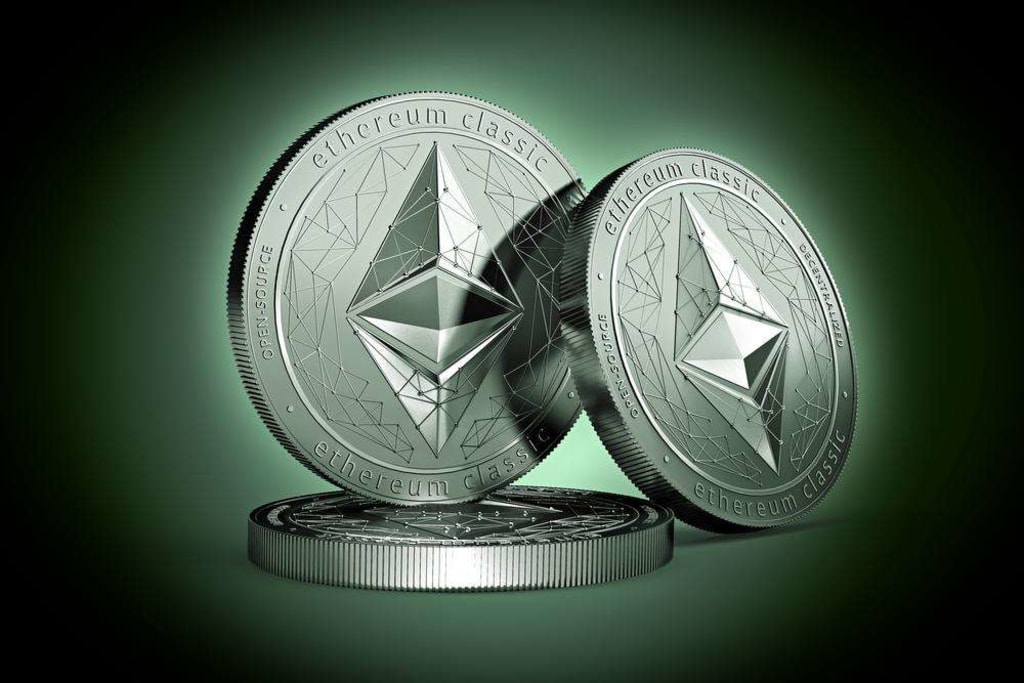Ethereum: A Comprehensive Guide to the World's Second-Largest Cryptocurrency
Our perspectives on money and transactions are evolving as a result of cryptocurrencies. Ethereum has risen to become the second-largest cryptocurrency among all the others in terms of market value.

Introduction:
Our perspectives on money and transactions are evolving as a result of cryptocurrencies. Ethereum has risen to become the second-largest cryptocurrency among all the others in terms of market value. We shall talk about the background, characteristics, and market movements of Ethereum in this post.
What is Ethereum?
Developers may create decentralized apps (dApps) utilizing intelligent contracts on the decentralized, open-source Ethereum blockchain platform. The native cryptocurrency of the platform is called Ether (ETH), and it is used to cover transaction costs and provide incentives for platform developers to create and maintain it.
The History of Ethereum:
Programmer Vitalik Buterin, a Russian-Canadian, founded Ethereum in 2013 after seeing the potential of blockchain technology outside of cryptocurrencies. The Ethereum Foundation started a crowdfunding campaign in 2014, and it successfully obtained $18 million to build the platform. Since the mainnet of Ethereum was introduced in 2015, it has grown to rank among the most widely used blockchain technologies.
Features of Ethereum:
Many factors make Ethereum stand out from other blockchain systems. Smart contracts, which let developers construct self-executing contracts that run automatically when specific circumstances are satisfied, are crucial. Decentralized autonomous organizations (DAOs), managed by smart contracts rather than by humans, are also supported by Ethereum. Solidity, an Ethereum-exclusive programming language, also makes it simpler for developers to build dApps on the network.
Current Trends in the Ethereum Market:
Since its inception, Ethereum has experienced rapid growth; in 2021, its market value will be $460 billion. The development of non-fungible tokens (NFTs) and decentralized finance (DeFi), which employ Ethereum's innovative contract technology to build new financial instruments and digital assets, has been a major factor in the platform's popularity. Nevertheless, users and developers have also expressed worry about Ethereum's high gas costs and scalability problems.
Indeed, here are some additional points to consider when discussing Ethereum:
Ethereum 2.0: The forthcoming release of Ethereum 2.0, also known as Eth2 or Serenity, is one of the most critical advancements in the Ethereum ecosystem. With the introduction of sharding and the switch to a proof-of-stake (PoS) consensus method, this version seeks to alleviate some of the scalability and gas price problems. PoS will replace the present proof-of-work (PoW) system, consuming less energy and enabling faster transaction processing. The blockchain will be sharded into smaller pieces, enhancing network speed and boosting transaction throughput.
Competition: Other blockchain platforms besides Ethereum support smart contracts. Competing systems with different benefits and features have developed in recent years, including Cardano, Polkadot, and Solana. Because of market rivalry, Ethereum's development and acceptance may need to be improved.
Decentralization: Decentralization, one of the fundamental tenets of blockchain technology, makes guarantee that no one person, organization, or group can exert total control over the network. Even though Ethereum is decentralized, issues have been raised regarding the concentration of power in a small number of massive mining pools and the possibility of a 51% assault. The Ethereum community is developing methods to deal with these problems and further decentralization.
Environmental Impact: Like Bitcoin and other PoW-based cryptocurrencies, some worry about Ethereum's energy use. This problem will be solved by Ethereum 2.0's switch to PoS consensus, which is predicted to be more energy-efficient than PoW.
Regulation: When new rules and regulations to control their usage and sale are introduced in various nations, the regulatory environment for cryptocurrencies changes. Investors must know how the regulatory framework in their country or area may affect their decision to invest in Ethereum.
Conclusion:
Because of the availability of features like smart contracts and decentralized autonomous organizations, Ethereum has become a top blockchain platform. The platform's popularity has increased due to the emergence of DeFi and NFTs, which have given it new applications. While there are challenges with its scalability and petrol costs, the Ethereum community is attempting to find answers. Before investing in Ethereum or any other cryptocurrency, you must do your homework and comprehend the risks and rewards.
About the Creator
zain Ul Abedeen
tgyujklk.





Comments
There are no comments for this story
Be the first to respond and start the conversation.